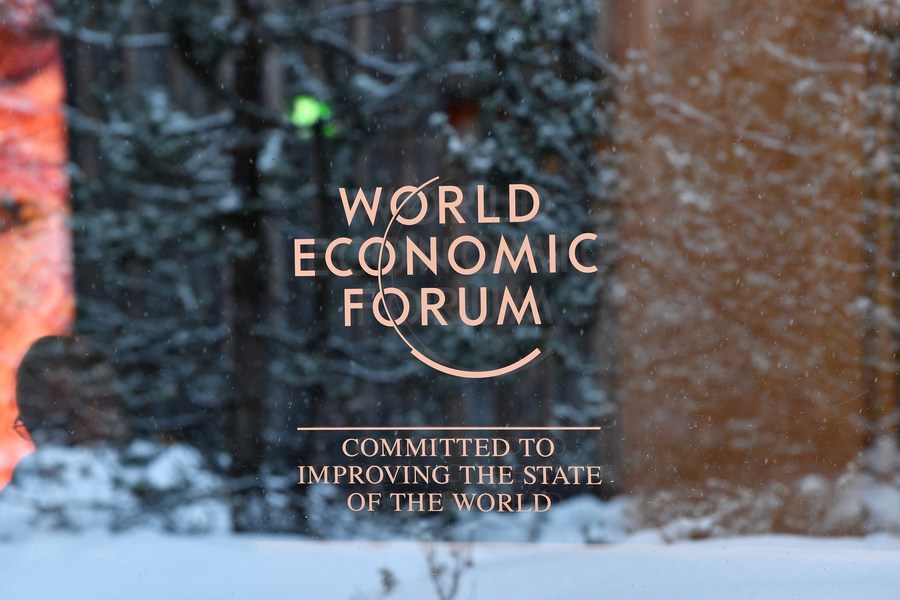Global economic recession likely in 2023: WEF survey

This photo taken on Jan. 15, 2023 shows the logo of the World Economic Forum (WEF) in Davos, Switzerland. (Xinhua/Lian Yi)
According to a WEF statement on the survey, there was a strong consensus that the prospects for growth in 2023 are bleak, especially in Europe and the United States. All the chief economists surveyed expect weak or very weak growth in 2023 in Europe, while 91 percent expect weak or very weak growth in the United States.
DAVOS, Switzerland, Jan. 16 (Xinhua) -- Two-thirds of chief economists from private and public sectors expect a global recession in 2023, according to a survey released on Monday at the annual World Economic Forum (WEF) in Switzerland.
The surveyed economists anticipate further monetary tightening in the United States and Europe this year, and they see geopolitical tensions continuing to shape the global economy.
Some 18 percent of the respondents, more than twice the number in the previous survey in September 2022, considered a world recession "extremely likely." Only a third of them viewed it as unlikely this year.
The WEF's survey, "Chief Economists Outlook," was based on 22 responses from a group of senior economists drawn from international agencies, including the International Monetary Fund, investment banks, multinationals and reinsurance groups.

Staff members have a meeting at the Congress Center for the World Economic Forum (WEF) Annual Meeting 2023 in Davos, Switzerland, Jan. 15, 2023. (Xinhua/Lian Yi)
According to a WEF statement on the survey, there was a strong consensus that the prospects for growth in 2023 are bleak, especially in Europe and the United States. All the chief economists surveyed expect weak or very weak growth in 2023 in Europe, while 91 percent expect weak or very weak growth in the United States.
This marks a deterioration since the last statement when the corresponding figures were 86 percent for Europe and 64 percent for the United States.
"The current high inflation, low growth, high debt and high fragmentation environment reduces incentives for the investments needed to get back to growth and raise living standards for the world's most vulnerable," WEF Managing Director Saadia Zahidi said in the statement.
"Leaders must look beyond today's crises to invest in food and energy innovation, education and skills development, and in job-creating, high-potential markets of tomorrow. There is no time to lose," she added.

A pedestrian walks past an estate agency in Basingstoke, Britain on Nov. 13, 2022. (Photo by Tim Ireland/Xinhua)
Nine out of 10 respondents expect both weak demand and high borrowing costs to weigh on firms, with more than 60 percent also pointing to higher input costs. These challenges are expected to lead multinational businesses to cut costs, with many chief economists expecting firms to reduce operational expenses.
Photos
Related Stories
Copyright © 2023 People's Daily Online. All Rights Reserved.









